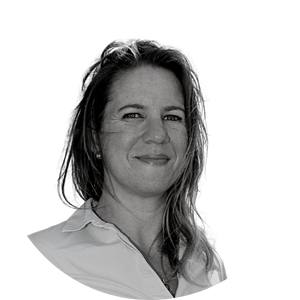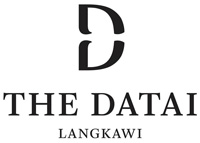
INTERVIEW - ARNAUD GIRODON, GENERAL MANAGER OF DATAI LANGKAWI, MALAYSIA AND FUTURE CEO OF DATAI HOTELS & RESORT: "DATAI LANGKAWI HAS SET THE STANDARD FOR THE BRAND"
After an extensive international career, the Aveyron-born Arnaud Girodon is to head the new Malaysian group Datai Hotels & Resorts, exporting the values of Datai Langkawi |
 |
INTERVIEW - ARNAUD GIRODON, GENERAL MANAGER OF DATAI LANGKAWI, MALAYSIA AND FUTURE CEO OF DATAI HOTELS & RESORT: "DATAI LANGKAWI HAS SET THE STANDARD FOR THE BRAND"
After an extensive international career, the Aveyron-born Arnaud Girodon is to head the new Malaysian group Datai Hotels & Resorts, exporting the values of Datai Langkawi |
Category: Asia Pacific - Malaysia - Careers
- Interviews and portraits
- Appointments - Interviews
Interview made by Vanessa Guerrier-Buisine on 2023-08-25
 Arnaud Girodon, General Manager of Datai Langkawi and soon to be CEO of the Datai Hotels & Resorts Group
Photo credit © The Datai Langkawi
This Frenchman's passion was born at the age of 11, when he visited his aunt, then general housekeeper of the George V, before the hotel joined the Four Seasons group. As he entered this emblematic establishment from behind the scenes, it was a revelation: the “high hospitality” would be his future career, on an international scale. With his diploma from the hotel & tourism school of St-Quentin en Yvelines in hand, he instantly indulged his desire to travel and explore new horizons. He headed for England, where he cut his teeth as an intern at Accor, before doing some casual work at the Dorchester in London. He took part in the opening of Accor hotels, but although he considered the group a “good school”, he didn't find there the type of hospitality he dreamed of. He then moved on to the sunnier, fast-growing destination of Dubai, joining the Jebel Ali Hotels & Resorts group, where he quickly progressed to the position of Food & Beverage Director. This was a particularly formative experience for the young Frenchman, who at just 24 years of age was managing 17 bars and restaurants and 800 employees.
After several years in the Middle East, which he put to good use by switching from catering to managing residences within the Rotana group, Arnaud Girodon flew to Asia. In 2006, he took over management of the Indigo Pearl Resort in Phuket, before a stopover in 2011 at the InterContinental Koh Samui Resort and a stopover in Vietnam, where he became General Manager of the InterContinental Danang Sun Peninsula Resort in 2013. But it was in Malaysia that the globetrotter settled down with his family in 2014, to stay with this treasured land. As the Datai Langkawi, a hotel set in a unique ecosystem, celebrates its 30th anniversary, the Frenchman turns to new horizons.
For the Journal des Palaces, and to mark a new stage in his career, Arnaud Girodon agreed to look back and discuss his commitments and plans for Datai Hotels & Resorts.
Journal des Palaces: Your background is in the food and beverage business. Was managing hotels and hotel groups a career objective?
Arnaud Girodon:It was very clear to me: as soon as I started in the hospitality industry, I wanted to be general manager.
I preferred the restaurant business because it required more creativity. It's more difficult in terms of human management, especially as teams often change. In addition, managing variable costs requires a great deal of attention. The restaurant business also offers a lot of income-generating opportunities and a little more independence, which I really appreciate. After several years in this exciting world and in the Middle East, I wanted to see something different.
What do you enjoy most about your job?
The human dimension first. Then creativity, which is encouraged depending on the organization. That's why I'm less attracted to chain hotels, and more to small groups or individual hotels. It's also a profession that allows you to combine travel and meeting new people, not to mention gastronomic pleasures. The hotel business is all about conviviality, and that's what appeals to me most.
How would you define luxury hospitality?
The strict definition focuses on the comfort of rooms and public spaces. This definition lacks modernity and is out of step with today's reality. It's an organization which, in addition to being able to meet the demanding requirements of guests in terms of comfort, room space and high-quality catering, requires a sense of detail, anticipation and a truly human approach. This human approach is what can be lacking in some large properties, which are sometimes too technical to the detriment of the human touch. You have to know how to create real emotions and unique experiences.
Why did you settle in Asia?
My wife and I fell in love with Asia when we arrived in Thailand. When I started work in Phuket on a rebranding project, I was immediately put at ease. When you work in Asia, the offers are often in Asia, so I pursued my career in this region.
I went to open the InterContinental in Danang, Vietnam, a more complicated country in terms of family life, both medically and educationally. My daughter was three and my twins had just been born when the Datai opportunity arose, so I took it, and we left for Malaysia. We feel very much at home here.
What are your goals as General Manager of Datai Langkawi, and shortly as CEO of the Datai Hotels & Resorts Group?
There are many objectives for Datai Langkawi, and our future General Manager will be very busy. The most important project is the launch of our residences, some twenty luxury residences attached to the hotel, which are up for sale, from 8 to 15 million dollars. We'll also be building public spaces, with a new swimming pool, restaurants and bars, new spas, etc. We're increasing the hotel's inventory, moving into an even more luxurious hotel business, and these are projects for the next three years.
Regarding the Datai Hotels & Resorts group, we have two hotel openings in the pipeline, and three more in the pipeline.
What do you see as the main challenges and opportunities facing the luxury hotel sector? Does Malaysia have its particularities, or are the issues much the same?
The major challenge for me is climate change, which raises the whole question of sustainability. Some people want to travel more locally, avoiding long journeys. By taking into account new habits, we'll be able to deploy more local policies.
In addition, competition with private homes and residences, including in the luxury hotel business, is an issue that needs to be taken into account.
The absorption of artificial intelligence is a key development in the industry. It is bound to revolutionize the way we take care of our guests, the way we sell our rooms, and influence the implementation of more tailored services.
These challenges are therefore opportunities for the hotel industry.
Finally, we are also facing a challenge that is unique to Malaysia: the regular change of government. Our group, owned by Khazanah Nasional, is a “government linked company”, which means that we are bound to the prime ministers of the day. With each election, we have to readjust, depending on the investment ambitions of the politicians, but we always manage to talk to the new prime ministers to move in the right direction.
The hotel is celebrating its 30th anniversary this year. What makes it different from other hotels in its category?
Datai Langkawi's most significant difference is its location. It's set in the heart of an extraordinary natural environment. We're in an archipelago with the greatest biodiversity in Asia. In total, we have over 2,000 hectares of untouched land, which is rare.
It's a hotel that has already won numerous awards, for its design, quality of service and so on. It's different, both in its level of service and in the facilities we offer. We have a golf course and nature activities in the middle of the jungle.
What are the most authentic experiences you offer your guests? Have you come up with any special offers for the 30th anniversary?
Most of the experiences we offer are based on nature and sustainability. In particular, we have created an experience called “Mandi Embun”, which evokes sylvotherapy in Malaysian, a concept created in Japan. I sent my teams there to study it.
We take our guests to the heart of our rainforest, near waterfalls. There, we've created platforms where our guests can bathe in a Fountain of Youth, from which they reap the benefits. We prepare tea for them, and introduce them to Silat, a Malaysian martial art, accompanied by breathing exercises. These experiences complement the workshops we have developed in our laboratory, the Nature Center.
To celebrate Datai's 30th anniversary, we have put together a four-part program. Art and culture first, then community, nature and finally gastronomy. For each component, we partnered with local associations.
How will the Datai Hotels & Resorts brand differ from other luxury hotel brands?
Datai Langkawi has set the standard for the brand. We will choose hotels that benefit from locations connected to nature, and where a commitment to sustainable development is already in place or can be implemented.
We want to be able to offer unique experiences, but a traveller who has selected the Datai Langkawi for its values will have to find them in each of our hotels. The Datai is in the heart of the jungle, another hotel could be by the water, but the prerequisite is contact with nature, which must be important, enhanced, and respected.
Our service will remain humble, offering real proximity. Here, service is warm, and we approach our guests with hospitality. Malaysians welcome guests as if they were in their own home. This relationship with the guest is extremely valuable because I think it will be all the more appreciated in the future. It will be developed in all our hotels, through our brand values:
- Our Malaysian Hospitality,
- Nature and Environment,
- Design as a Vital Force,
- Heritage and Culture,
- Sustainable Success,
- Connection.
Your CSR approach is central to your hotel. Could you tell us about your commitment?
We have launched a comprehensive program, with its website, The Datai Pledge (https://thedataipledge.org/), on which all our actions are based. It is built around four pillars: Pure For The Future, Fish For The Future, Wildlife For The Future and Youth For The Future. This program was created with the help of a naturalist friend.
It involves working with local communities, schools, and NGOs committed to youth, nature conservation and even single mothers. What's more, our teams are very committed, notably through our zero-waste approach, which we're really proud of because it's real and accomplished.
You've been with Datai for 9 years, how will you approach this new challenge of developing the Datai Hotels & Resorts brand?
From 2019, we had the desire to develop the brand, but Covid-19 slowed us down. We aim to export the Datai brand to Asia. Our target countries are Malaysia, Indonesia, the Philippines, Thailand, possibly Vietnam and potentially Laos and Cambodia.
Our most concrete projects are currently located in Malaysia, Indonesia, and the Philippines.
Could you mention a few professional encounters that have marked your career? Do you have any mentors, and if so, can you tell us about them? What did they teach you?
Two people in particular have really influenced the way I do business. Martin Weber, a Swiss, who worked with me in the Jebel Ali group. He has a deep sense of detail, is very intuitive, very operational, and for whom “no” is not an answer.
The second is Imad Elias, who was COO of Rotana Hotels. I worked alongside him when I was in Dubai, and he made an impression on me because his commercial skills are extraordinary. He has a deep sense of marketing and positioning. He's an extremely efficient person, yet very human at the same time. People who came into his office to tell him they were leaving their jobs for new horizons trembled with fear of deceiving him. He was much loved by his teams, and very charismatic.
Are there any mantras or quotations that accompany you?
There are two quotes I'm particularly fond of.
The first is that of Mohammed ben Rachid Al-Maktoum, Emir of Dubai, who said, “The race for excellence has no finish line”. Even in the hotel business, there's no room for complacency when it comes to competition.
The second is a quote from Nelson Mandela: “It always seems impossible, until it's done”. The openings I've managed have shown me that projects that seem complicated, even impossible, are achievable.
What kind of manager are you? How have you evolved in the way you manage your teams?
I'm still a field manager, accessible and willing to listen because I want my teams to be able to have ideas and talk about them. This can be complicated in Asia, where personalities are more reserved, despite great creativity. Teams need to feel comfortable enough to talk, so I try to gain their trust, which takes time.
I tend to delegate a lot, so that teams can move forward more quickly. Everyone works on different projects, either at the same time or at different times.
I also know the type of General Manager I would rather not be: one who makes short-term decisions, who is very hard on people, who doesn't give his teams the means to succeed.
As a Frenchman, what do you think are the benefits of an experience abroad?
First, there are the personal benefits. It opens your mind and helps you avoid any unfounded preconceptions. You realize that every nationality, every person, has its advantages and disadvantages. From a professional perspective, you gain varied experience and take on different challenges. This is truly enriching, as it enables you to adapt more easily and take a more global view.
What advice would you give to luxury hotel professionals looking to work abroad?
To have an experience abroad, you need to be open-minded, receptive to different cultures, gastronomy, traditions, and customs. To this must be added a deep-seated desire to travel.
You need to be humble, and not arrive in a new country with a sense of superiority. You have to be ambitious and determined, of course, but not condescending. The French sometimes project an image of arrogance, and many expatriates make the mistake of confusing ambition with arrogance.
What advice would you give to a young person seeking a career in the luxury hotel sector?
To make a career in the industry, you must be ambitious and determined. You also have to be open-minded because, particularly in the luxury hotel business, guests, and staff come from all walks of life, and you need to be able to serve them well. This requires curiosity and an ability to learn about different cultures.
You can't be afraid to serve, either. You'll be serving, not subservient, but you'll be serving guests, so you have to want to please them. This notion of taking pleasure in pleasing and giving pleasure is necessary to last in this sector.
Finally, you have to be loyal, and not change employers every six months, which reflects badly on you. Throughout my career, I stayed with the same hotel for three or four years. If you're impatient, move up within the group or change departments in the hotel where you work.
 The Datai Langkawi - Resort Overview
Photo credit © The Datai Langkawi
 The Datai Langkawi - Canopy Walk
Photo credit © Eric Martin / The Datai Langkawi
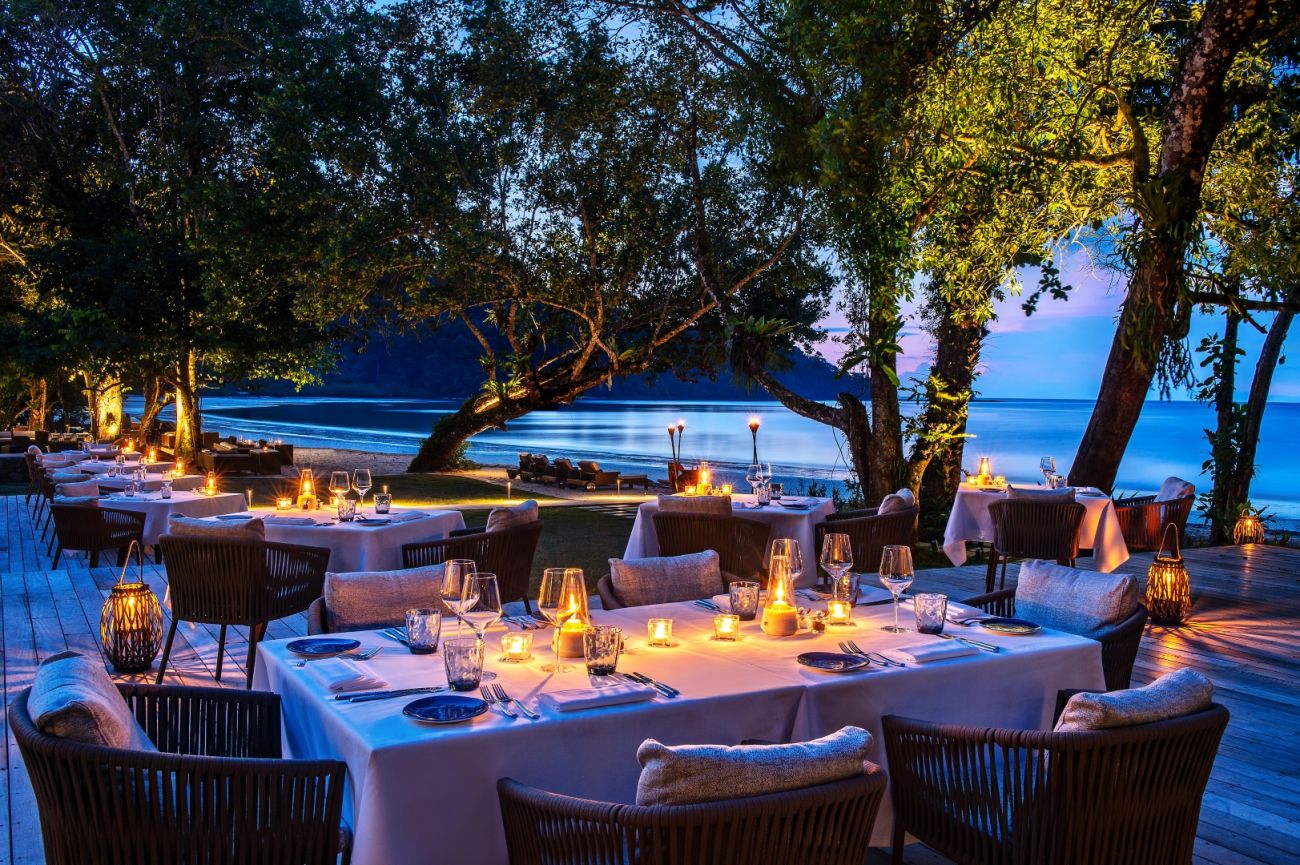 The Datai Langkawi - The Beach Club
Photo credit © The Datai Langkawi
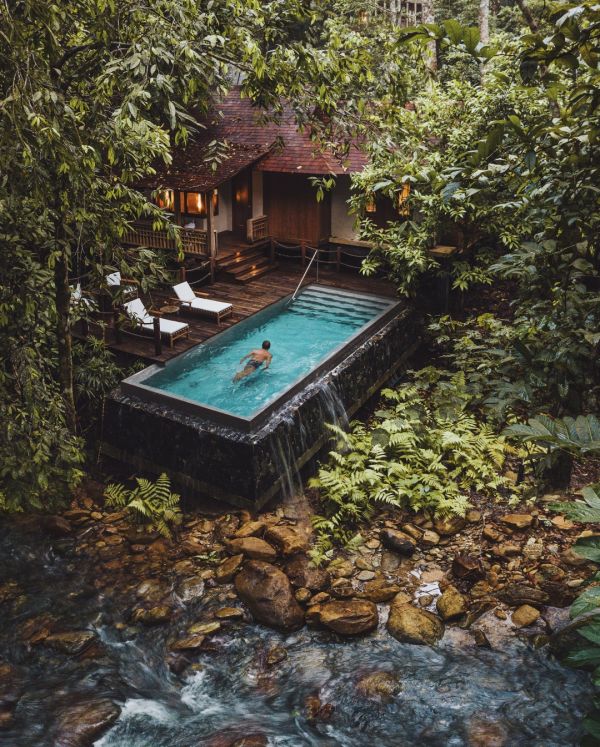 The Datai Langkawi - Rainforest Pool Villa
Photo credit © The Datai Langkawi
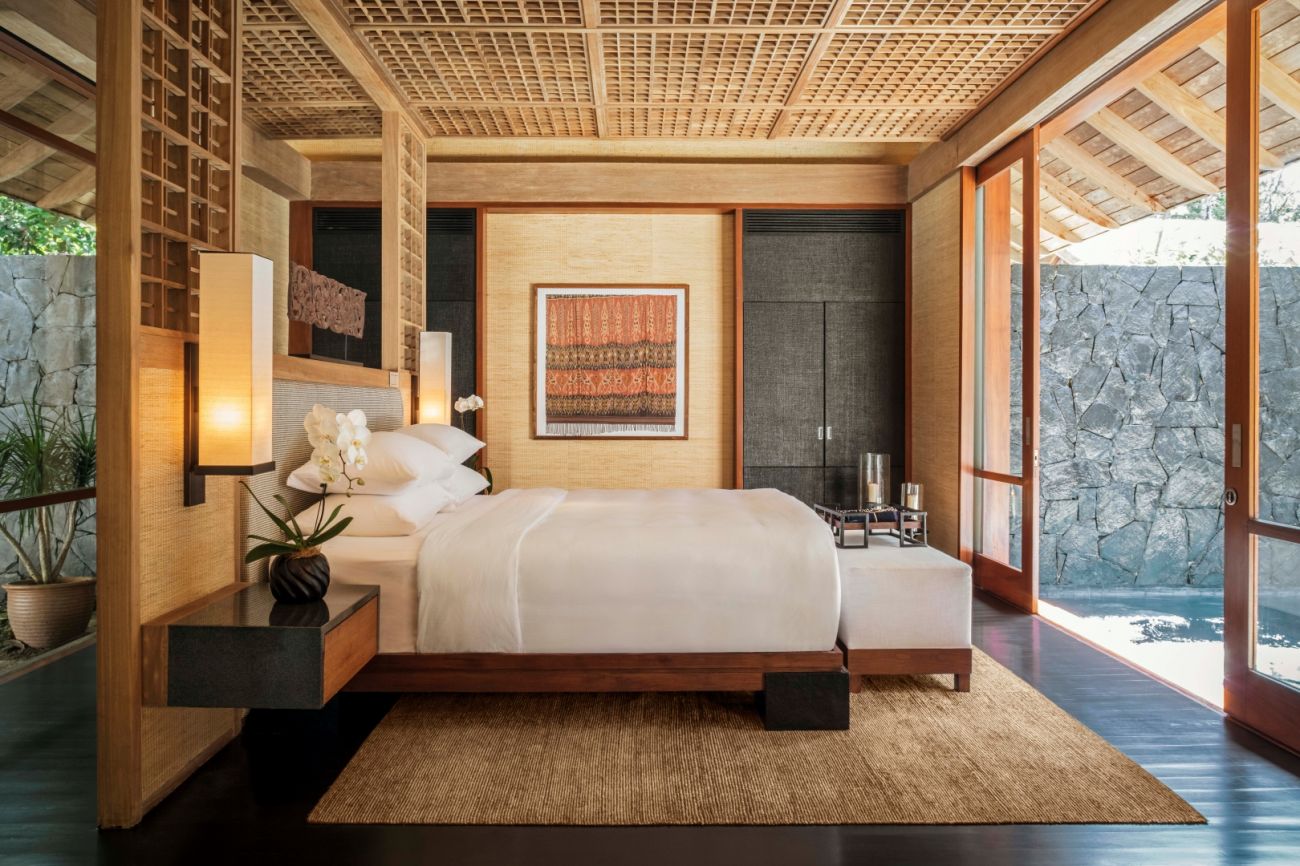 The Datai Langkawi - One Bedroom Beach Villa
Photo credit © The Datai Langkawi
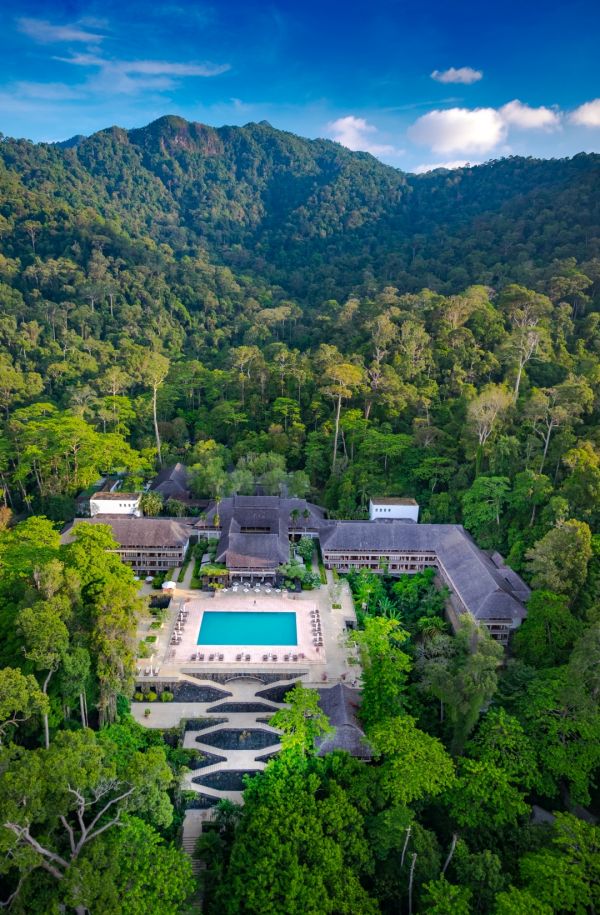 The Datai Langkawi - Resort Overview
Photo credit © The Datai Langkawi
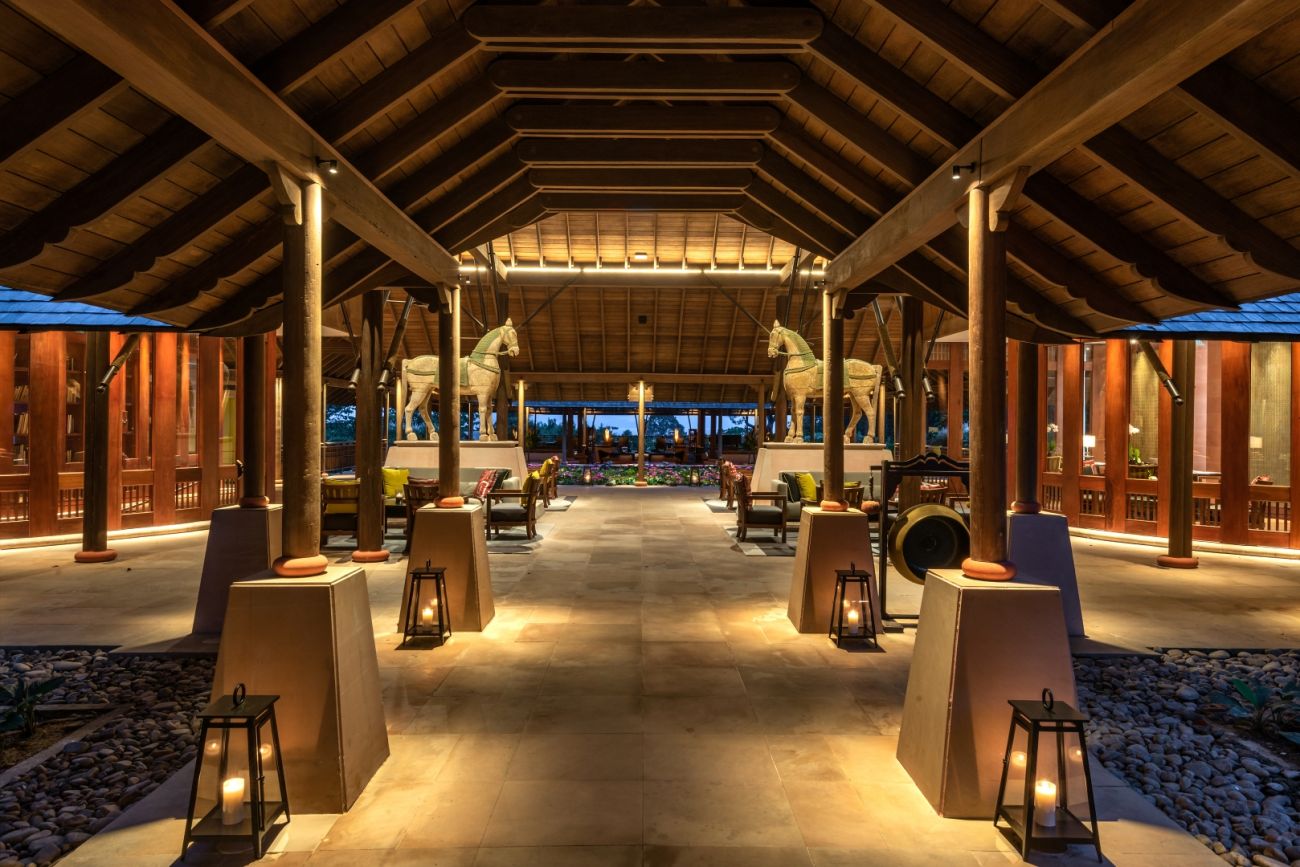 The Datai Langkawi - Lobby
Photo credit © The Datai Langkawi
|
|





